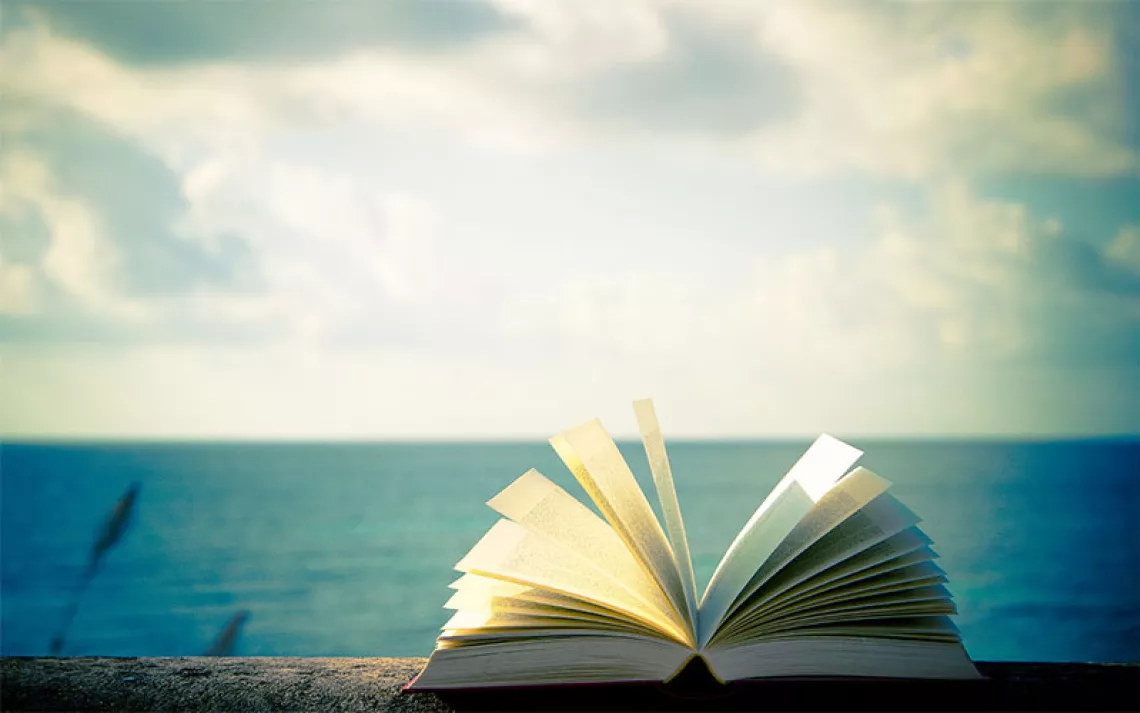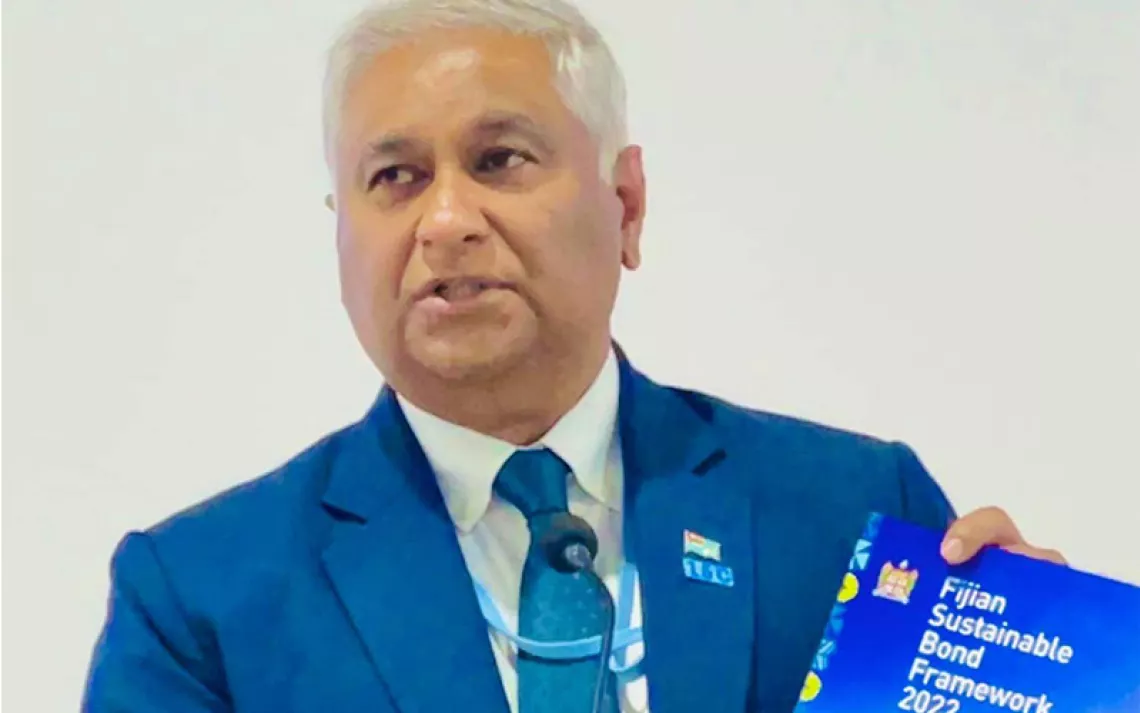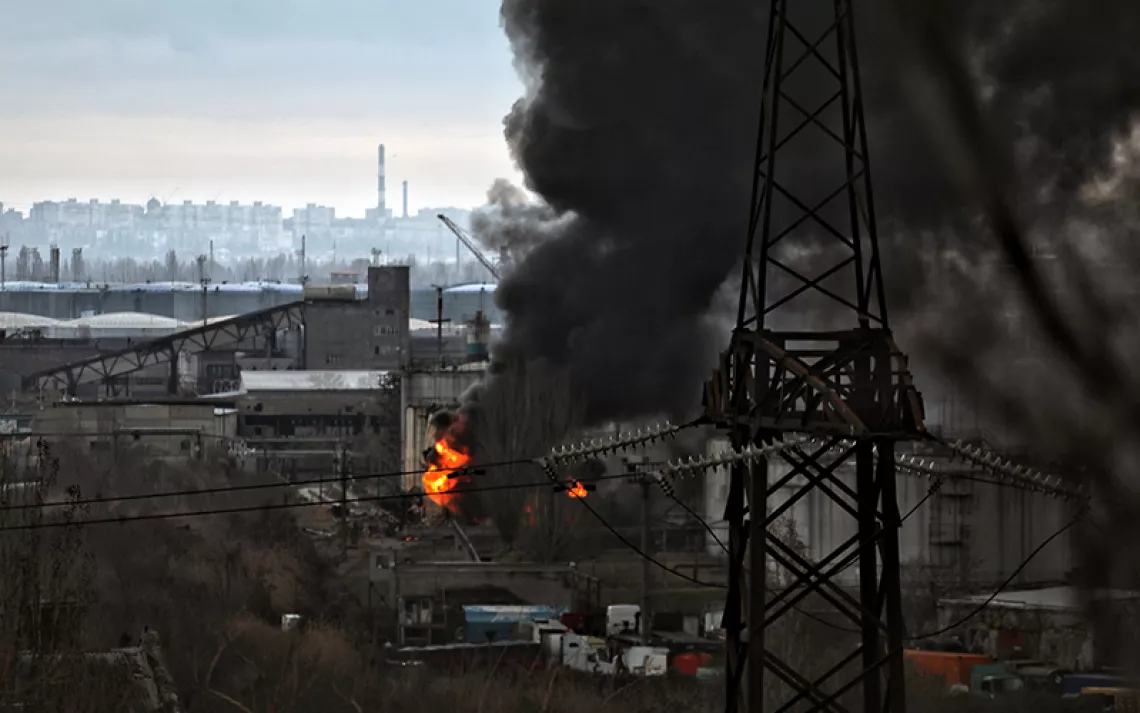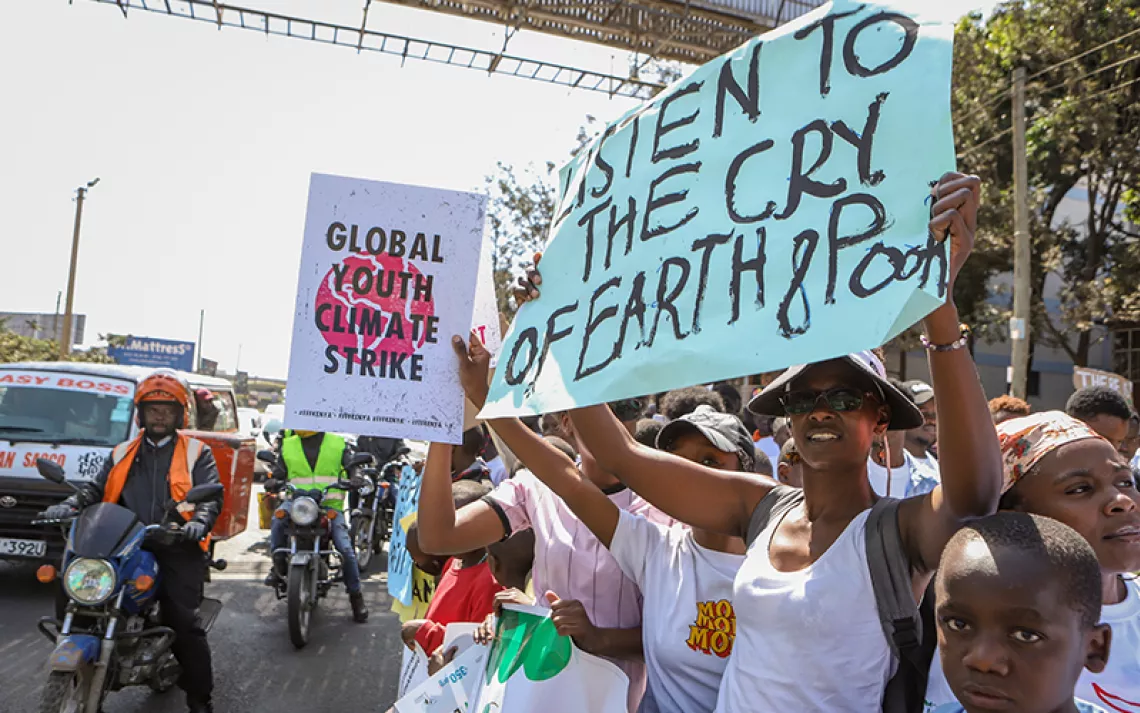The Global Climate Breakdown: Does Climate Change Violate International Law?
A leader from Vanuatu discusses an effort to bring climate change before the International Court of Justice
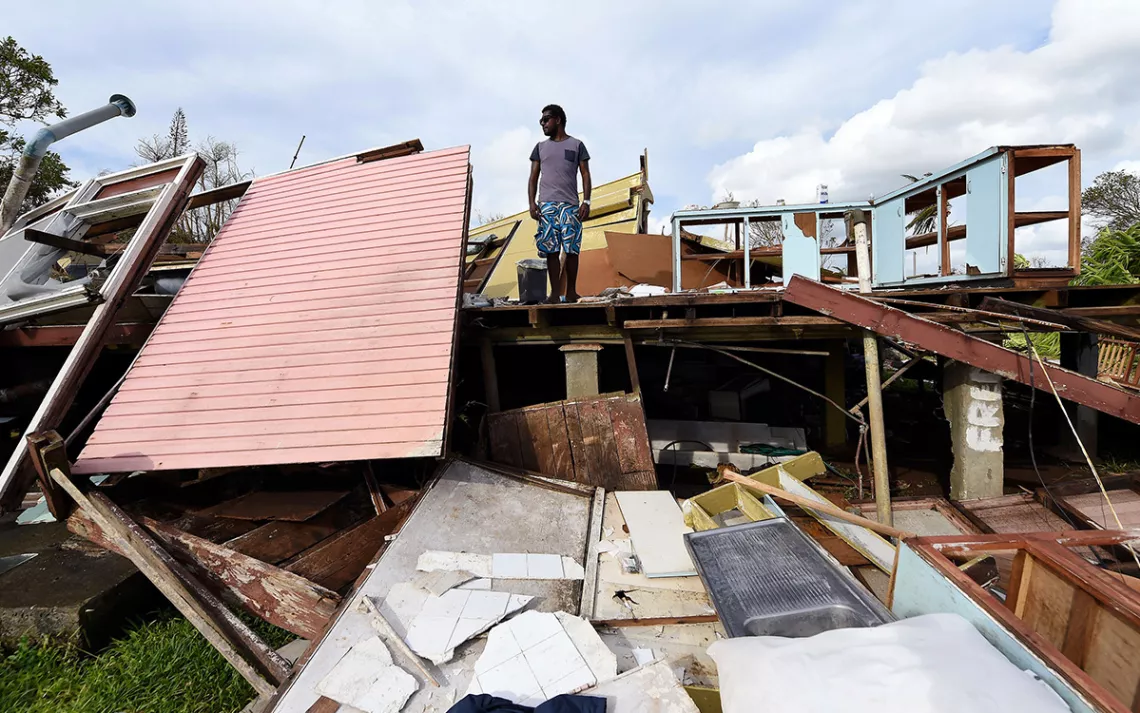
Photo by Dave Hunt/AP Photo, Pool
Since the Paris Agreement was signed in 2015, it has become the central framework for countries to work together to tackle the climate crisis. But as climate forecasts have become increasingly dire, and national pledges to reduce carbon and methane pollution remain stubbornly inadequate, it’s hard to say that the Paris has been an unmitigated success. Nobody doubts that the Paris Agreement is essential. The question is whether it is enough.
The answer to that question will fall hardest on the most vulnerable countries. For them, the difference between a fully successful Paris regime and a partially successful one may be the difference between prosperity and catastrophe.
It’s no surprise, then, that poorer nations have a certain impatience with the Paris Agreement—and a strong desire to find innovative ways to strengthen it.
The most interesting of these is a new initiative by the Pacific island nation of Vanuatu to seek an advisory opinion from the International Court of Justice (ICJ) clarifying the legal obligations of states under international law to address climate change.
Behind the Paris Agreement hangs a rich tapestry of international law principles and norms that bear on these responsibilities, including those to related to human rights, international environmental law, national sovereignty and intergenerational equity. Because the Paris Agreement was a negotiated—and thus a fundamentally political—document, it did not attempt to clarify the tensions between these sources, or to synthesize them into a coherent whole. That is what Vanuatu is asking the ICJ to do.
Vanuatu has secured the support of a range of countries, including Germany and several other developed countries. It hopes to refer these questions to the ICJ in the coming months. And this effort will certainly be a topic of conversation at the upcoming UN climate talks in Egypt, where the longstanding question of how richer countries should help the poorer ones deal with “loss and damage” from climate change will be on the agenda.
To better understand this origin and potential of this effort, I reached out to Ambassador Odo Tevi, the Republic of Vanuatu’s permanent representative to the United Nations. Our conversation has been edited for clarity and brevity.
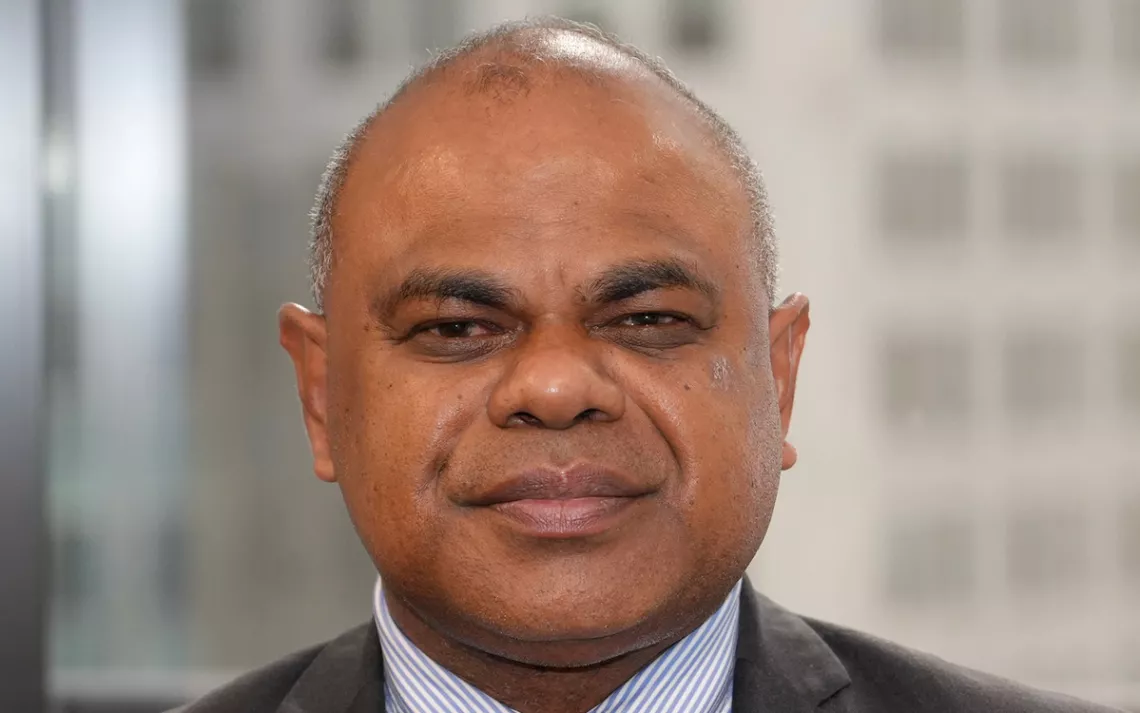
Odo Tevi, Permanent Mission of the Republic of Vanuatu to the United Nations. Photo by Kevin Chand/Courtesy Vanuatu mission to the United Nations
Steve Herz: Vanuatu is known to be one of the most climate-vulnerable countries in the world. Can you talk about the threats that Vanuatu faces from climate change and some of the impacts that you're already enduring?
Ambassador Tevi: Thank you, Steve. Vanuatu, is exposed to a lot of natural disasters: cyclones, earthquakes, flooding, and drought. The United Nations has ranked Vanuatu as the most vulnerable country in the world relating to disasters—mostly cyclones, especially Category Five cyclones. For example, Cyclone Pam [in 2015] devastated around 60 percent of our overall economy. So that's the magnitude that we're looking at for Category Five cyclones. But below that, we could be looking [at losses between] from 5 percent of GDP to around 25 percent of GDP [from other storms]. But for Category Five cyclones, it's severe. And it takes a toll on our government finances.
Of course, we have sea level rise as well, which is affecting smaller islands. I mean, we are blessed, because most of our islands are mountainous, especially when compared to Kiribati and Tuvalu, our neighbors in the Pacific. But we also have smaller islands that are affected by sea level rise. And because of that we have to move entire populations. And that means we have to build new schools and other services that are important for the population to access.
Faced with these challenges, Vanuatu has decided to pursue a rather innovative legal strategy. If I understand correctly, you want the ICJ to issue an advisory opinion that would clarify the legal obligations of countries to prevent harm by reducing their greenhouse gas pollution. Is that a fair summary?
You are correct. The main objectives are to reduce harm, to protect the environment, but also to preserve our sovereignty and to ensure that our economies can be sustained in the long run. I think this is very important because we need to keep our people within the country. It’s also to improve climate ambition.
This is an initiative that was brought about by the University of the South Pacific law students.
I was going to ask about that. That's so interesting.
So it is the youth, the law students from the University of South Pacific. They came together and decided that maybe we should take this issue to the International Court of Justice. The University of South Pacific campus is based in Port Vila, Vanuatu. They decided to approach our Ministry of Foreign Affairs. That's how it started. It is from a grassroot movement; it is from the youth.
And just to dig a little more into the origin story: After they came to the government with this idea, why did the government decide to take it on?
Well, because it comes from the youth. The government felt that it is a genuine concern. And because Vanuatu is one of the most climate-change-vulnerable countries in the world, it is best placed to take up this issue to the International Court of Justice. We know very well that it's not going to be easy, given that climate change is very politically sensitive and sometimes politically charged. But the government decided that maybe it's worth taking the risk, as it might contribute to global public good in the future.
What specifically is the legal question that you'd like to put before the ICJ? What do you want them to advise on?
We haven't really given out the questions to a wider audience. But I would say we all know the impacts of climate change such as sea level rise, or extreme weather patterns, or natural disasters will be more frequent, and especially more severe. And we felt that the resolution should focus on the most vulnerable, which is the small island developing countries, such as the Pacific Island countries and the Caribbean, and other island states in the world. But not only that, it has to include other most vulnerable countries, for example in Africa, in Latin America, or in Asia that are affected by climate change. So that's what the resolution focused on, to protect their future.
What are the impacts? Like you mentioned at the beginning, to clarify other nation-states’ responsibilities to these countries. That's one. And then the other one is to clarify nation-state responsibilities towards present and future generations. So there’s an intergenerational equity component. But it also touches on the issue of self-determination.
What would a good decision by the ICJ look like, if you were to get the question before them?
Of course, we want a nice statement coming from the ICJ that really clarifies nation-state responsibilities. But it should also lead to increasing climate ambitions in terms of reducing emissions as well as giving more resources toward adaptation and mitigation. We hope that it will also lead to a progressive development of international law. That's very important. The pronouncement, if it is positive, will also help us if we take it to the regional courts. Or even domestic courts will be able to use it, and there could be a convergence in terms of judgments globally.
This is so interesting and novel. Obviously the more established route to evolving climate change law or norms would be to work through the Paris Agreement process. What do you hope that an advisory opinion from the ICJ could deliver that, say a COP decision couldn't?
Well, the Paris Agreement and all the COP [“conference of parties”] processes are based on goodwill and are voluntary. I think that's very important. But we hope that the pronouncement will lead to increased ambition. Apart from being voluntary, we want to ensure that the countries really are committed to reduce emissions—and also to provide the necessary resources for countries that are affected to be able to withstand these adverse climatic impacts.
Also, we hope that it doesn’t only focus on the Paris Agreement. The way the resolution is set out, it also focuses on other areas as well. We are trying to invoke other international laws. We are hoping that the Court can clarify the obligation of states under the relevant treaties, including the Charter of the United Nations, the International Covenant on Civil and Political Rights, and on Economic Social and Cultural Rights, the United Nations Framework Convention on Climate Change, the Paris Agreement, and the United Nations Convention on the Law of the Sea.
We're not asking the court to set new rules—because that's not their role—but rather to interpret the different international laws and to look at climate change in the context of these international laws and international customary principles.
It’s always struck me how segregated the Paris Agreement is from the other areas of international law. It lets countries set their own emission-reduction targets, and they're not legally binding and enforceable. And yet we have a separate body of international law that includes ICJ decisions that says that countries have a responsibility to prevent cross border environmental harms. The two are in tension, but the Paris Agreement doesn't really address that. And the same is true with human rights. We know that climate change is going to cause all kinds of human rights harms. But when the Paris Agreement was negotiated, references to human rights were left out of the text.
Is one of your hopes that an International Court of Justice opinion can reconcile these different pieces of international law and bring them together into a more coherent whole?
Yeah, that's one of the one of the objectives. We hope that it will also lead to a progressive development of the international law, and also clarity.
If I understand correctly, an advisory opinion also would be non-binding. How could a favorable opinion work to influence countries to accelerate their efforts to reduce emissions?
Well, if the ICJ pronouncements are positive, there will be another resolution that will be taken to the UN General Assembly. And it will include these positive pronouncements, and then the Member States have to use it. Like any other General Assembly resolutions, they are non-binding as well. But it could be used by [climate] negotiators—by quoting the pronouncements from the ICJ. It gives you an extra tool for the negotiators to use in climate talks.
Because the ICJ pronouncements are authoritative, they have legal effect as well. So, the regional courts around the world, as well as domestic courts, will be using it as a precedent. And we know that, for example, in many European countries they have a very high standard of environmental safeguards in law. A lot of developing countries have also improved their laws in terms of the environment, climate change, and so forth. The grassroot movements can use it as a tool. So it not only serves the work of the negotiators and the diplomats and helps to improve international law in the area of climate change—but it also helps with cases in regional courts as well as in domestic courts.
Loss-and-damage is obviously such a hot topic in the Paris Agreement. Would you be requesting the International Court of Justice to advise on the question of legal liability of high emitting countries to the most vulnerable for the impacts their emissions?
Loss and damage is something that is quite sensitive, although it's highly recognized in the climate negotiations. And this is where, in the next COP, it's going to be one of the most important topics that the Alliance of Small Island States (AOSIS) and other developing countries will be taking it up.
Of course, we are hoping that the pronouncements of the International Court of Justice will help in the process of loss and damage, but it goes beyond that. I think the narrative of the moment is on human rights, on [the impacts to] current and present future generations. It's a sensitive topic. It is an area where the [developed] as well as the developing countries have to come together and talk. But we hope that some of the pronouncements will help to clarify state responsibilities and that negotiators working on the loss and damage can use some of these tools.
Some people might interpret this effort as giving up on the Paris Agreement. Do you see it that way?
No, I would say it's more about strengthening multilateralism. It's all about strengthening the Paris Agreement.
What we need is a more climate ambition. I mean, the Paris Agreement and the COP process will continue. But the hope is that [a favorable ICJ ruling] will reinforce and improve negotiations within that space. The aim is not to replace it, but to strengthen it, and to strengthen multilateralism as a whole. We've been discussing climate change in the COPs, and the General Assembly and in other UN forums. But I think the International Court of Justice is another UN organ where we can also discuss it. Most of the organs within the UN are discussing the issue, and it's one of the biggest challenges for our civilization, for Homo sapiens as a species.
Okay, let’s talk about the mechanics of how you put the questions before the International Court of Justice. What has to happen to initiate the request?
Well, first we have to take it to the General Assembly for the voting. So there you would require a simple majority of the members present and voting. For the 193 United Nation members, you would need at least 97 votes. If possible, we want to get a lot of votes from developing countries as well as from developed countries. The simple majority is 97, but going beyond that will be important, because it will also portray to the International Court of Justice that the international community is speaking.
Because it is a General Assembly process, it is also a political process. So that's the work that I'm currently doing: to try and lobby and talk and sometimes compromise with other countries. You can only do that by working with others; you cannot do it alone. So you need to have a broader group, which includes not only the most vulnerable groups, but countries from the North, some of the most developed countries, to be part of the partnership. That would signal to the world that they are concerned about climate change, and that they are also taking a leadership role so that they can protect the present and future generations as well.
What is the position of the US government?
They have not made the decision. I have discussed it with [US] officials, of course. And they're listening.
And what's the timeline? When do you hope that it will actually come to a vote?
We are hoping that the vote will take place in the 77th session of the General Assembly. We will move it towards December, January, and February so it will give enough time for countries to deliberate and discuss the resolution. [Editor’s note: A first draft of the resolution will be released here in mid-November. Informal negotiations are expected to begin on November 21.]
About this series:
The Global Climate Breakdown is hosted by Steve Herz, the Sierra Club’s Senior International Climate Policy Advisor. At least once a month, Steve talks with experts and changemakers to help explain some of the most important emerging global climate issues.
 The Magazine of The Sierra Club
The Magazine of The Sierra Club
